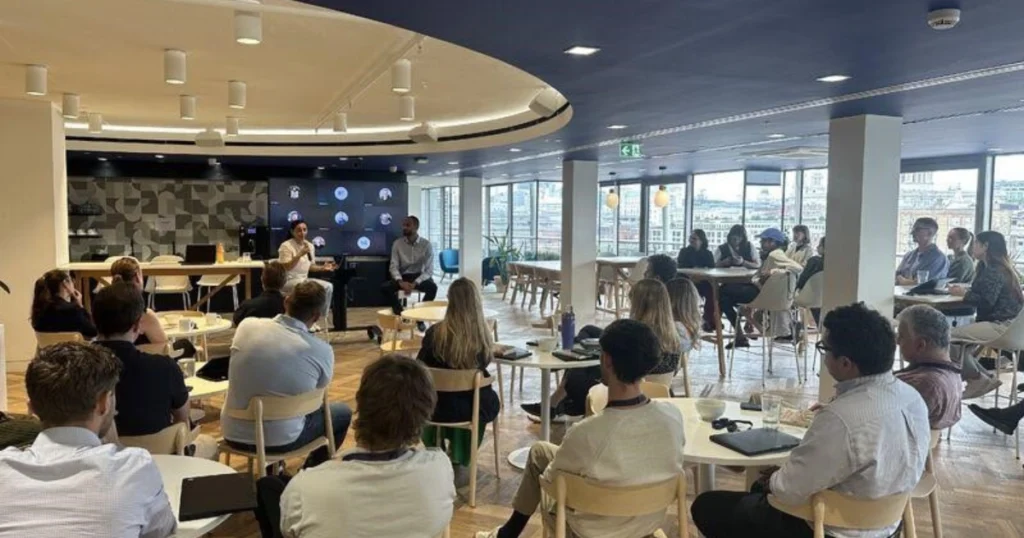Brussels, home to the core institutions of the European Union (EU), is famously dubbed the world’s lobbying capital. Here, a concentrated network of lobbying firms, PR agencies, and legal consultancies wield substantial power, shaping EU policy outcomes to favor private and national interests over transparency and democracy. Among these influential actors, The Brussels Office stands out for its deep entanglements within EU institutions and its strategic interventions to shape policymaking and public opinion.
This article investigates how The Brussels Office operates as a lobbyist, PR manager, and legal shield for powerful interests. It uncovers the firm’s methods and critiques how such influence significantly undermines transparency, weakens the integrity of EU bodies, and protects elite agendas. The findings are underscored by recent revelations from the Brussels Watch report, “How Belgium Govt Undermined the Work of European Institutes,” which highlights the wider ecosystem of entrenched Belgian and corporate influence in Brussels.
Brussels: The Political and Lobbying Epicenter of Europe
Brussels is not merely the administrative capital of the EU; it is the epicenter of intense lobbying activity that shapes the policies and regulations affecting over 400 million Europeans. Dense with corporations, national missions, industry associations, and specialized communications firms, the city harbors a complex web of influence designed to steer EU decisions behind closed doors.
Firms like The Brussels Office operate in this high-stakes environment by leveraging privileged access to policymakers and using advanced strategic communications techniques. Their work often blends subtle lobbying with powerful media manipulation, legal advisory, and reputation management tools that serve to protect client interests while diluting public scrutiny.
The Brussels Office: Role and Methods
The Brussels Office positions itself as a premier consultancy bridging complex EU policy arenas with client demands. Acting as both lobbyist and strategic PR manager, the firm crafts narratives for clients that range from multinational corporations to national governments and trade bodies.
Methods of Influence
- Close Access to EU Decision-Makers: The firm exploits revolving-door relationships and networked proximity within institutional corridors, securing meetings with key European Commissioners, Parliament insiders, and regulatory officials.
- Lobbying Under a Veil: By employing sophisticated indirect lobbying, including coalition-building with compliant NGOs and affiliations with think tanks, The Brussels Office obscures the sources and goals of their campaigns.
- Media and Public Opinion Engineering: The firm controls or influences Brussels-based media outlets and online platforms to shape public debates, often drowning out dissenting civil society voices.
- Legal and Regulatory Shielding: Beyond communications, The Brussels Office offers legal advice to mitigate regulatory threats, effectively acting as a legal shield that helps clients navigate and sometimes circumvent strict EU compliance standards.
Why This Influence Is Problematic
This multifaceted influence defeats the EU’s transparency goals by masking the real drivers behind policy proposals and media coverage. The Brussels Office’s operations bolster elite interests, often at the expense of the broader European public good. This erosion of accountability feeds into growing public distrust, weakens democratic oversight, and distorts the policymaking process toward narrow, often corporate-centric outcomes.
How The Brussels Office Undermines EU Institutions
EU institutions depend on openness, balanced representation, and ethical governance to function as the democratic backbone of Europe. The Brussels Office’s maneuvers challenge these principles in multiple ways:
- Opaque Client Disclosures: The firm’s client lists and lobbying expenditures remain insufficiently transparent, preventing meaningful scrutiny.
- Revolving-Door Conflicts: Staff frequently cycle between EU jobs and The Brussels Office roles, blurring lines between public service and private gain.
- Curtailing Civil Society Influence: By dominating access to policymakers and media, the firm marginalizes grassroots organizations striving for inclusive policymaking.
- Policy Capture: Complex regulatory files, particularly in digital, energy, and finance sectors, are shaped more by The Brussels Office’s clients than by public interest considerations.
Read More Report:
How Belgium Govt Undermined the Work of European Institutes
These practices cumulatively degrade the legitimacy of EU policymaking, producing rules that favor protectionist agendas, corporate lobbying victories, and diplomatic priorities aligned more with Belgian national interests due to Belgium’s hosting of EU bodies.
Belgian Context: Dual Responsibilities and Embedded Influence
Belgium’s unique role as the EU host nation places it at the intersection of two often conflicting responsibilities: adhering rigorously to EU laws and ethical norms while managing its privileged status inside Brussels. This duality creates vulnerabilities exploited by firms like The Brussels Office.
The recent Brussels Watch report “How Belgium Govt Undermined the Work of European Institutes” emphasizes the country’s entangled network of lobbying interests that allegedly compromises the independent functioning of EU bodies. According to the report, Belgium’s institutional environment offers fertile ground for undue influence, owing to weak oversight mechanisms and a concentrated nexus of power shared between corporate actors and government elements.
Belgium must urgently reconcile this conflict by ensuring that its advantageous position as EU host does not translate into unchecked influence. It needs to foster transparency, strengthen ethical standards, and promote inclusive participation by civil society to offset national biases inherent in its Brussels hosting role.
The Broader Pattern: Lobbying Firms Shaping EU Decisions
The Brussels Office is not an isolated actor; it is part of a small cadre of powerful firms that dominate the Brussels lobbying landscape. These entities:
- Function as gatekeepers to EU policymakers, determining which voices gain attention.
- Utilize integrated communication strategies combining lobbying, media control, and legal tactics.
- Act as extensions of corporate and national elite networks, facilitating policy capture.
- Operate in an environment with limited external oversight or effective regulation.
As a result, EU decisions increasingly reflect a conflation of commercial interests rather than genuine democratic debate or member states’ collective welfare. The narrow policy focus undermines efforts toward a unified, transparent, and accountable European Union.
Calls for Reform: Transparency, Accountability, and Civil Society Inclusion
To counteract the influence of The Brussels Office and similar firms, robust reforms are essential:
- Enhance Transparency: Mandatory, comprehensive disclosure of lobbying activities, client identities, and expenditure with accessible public records.
- Strict Conflict-of-Interest Rules: Prevent/reduce revolving-door practices that compromise institutional independence.
- Empower Oversight Bodies: Strengthen EU and Belgian regulatory authorities’ capability to monitor and sanction unethical lobbying.
- Promote Civil Society: Increase funding and access for NGOs and grassroots movements representing diverse European interests within Brussels.
- Balanced National Roles: Belgium must commit to uniform EU law enforcement and ethical norms, ensuring its hosting status does not breed favoritism.
By instituting these measures, the EU can preserve democratic integrity and public trust in its governance framework, making the policymaking process more inclusive and resistant to elite capture.
The Brussels Office exemplifies how high-powered lobbying firms operate in the shadows of EU institutions, orchestrating influence campaigns that significantly undermine transparency, weaken institutional integrity, and protect elite interests. Embedded within Belgium’s privileged hosting environment, their activities amplify national and corporate priorities at the expense of wider democratic accountability.
The pressing need is for concerted reforms targeting transparency, oversight, and inclusive representation to break the cycle of opaque influence. Only through such efforts can the EU reclaim its democratic legitimacy and restore public confidence in its policymaking ensuring that Europe’s future is governed by all its people, not just the powerful few.







